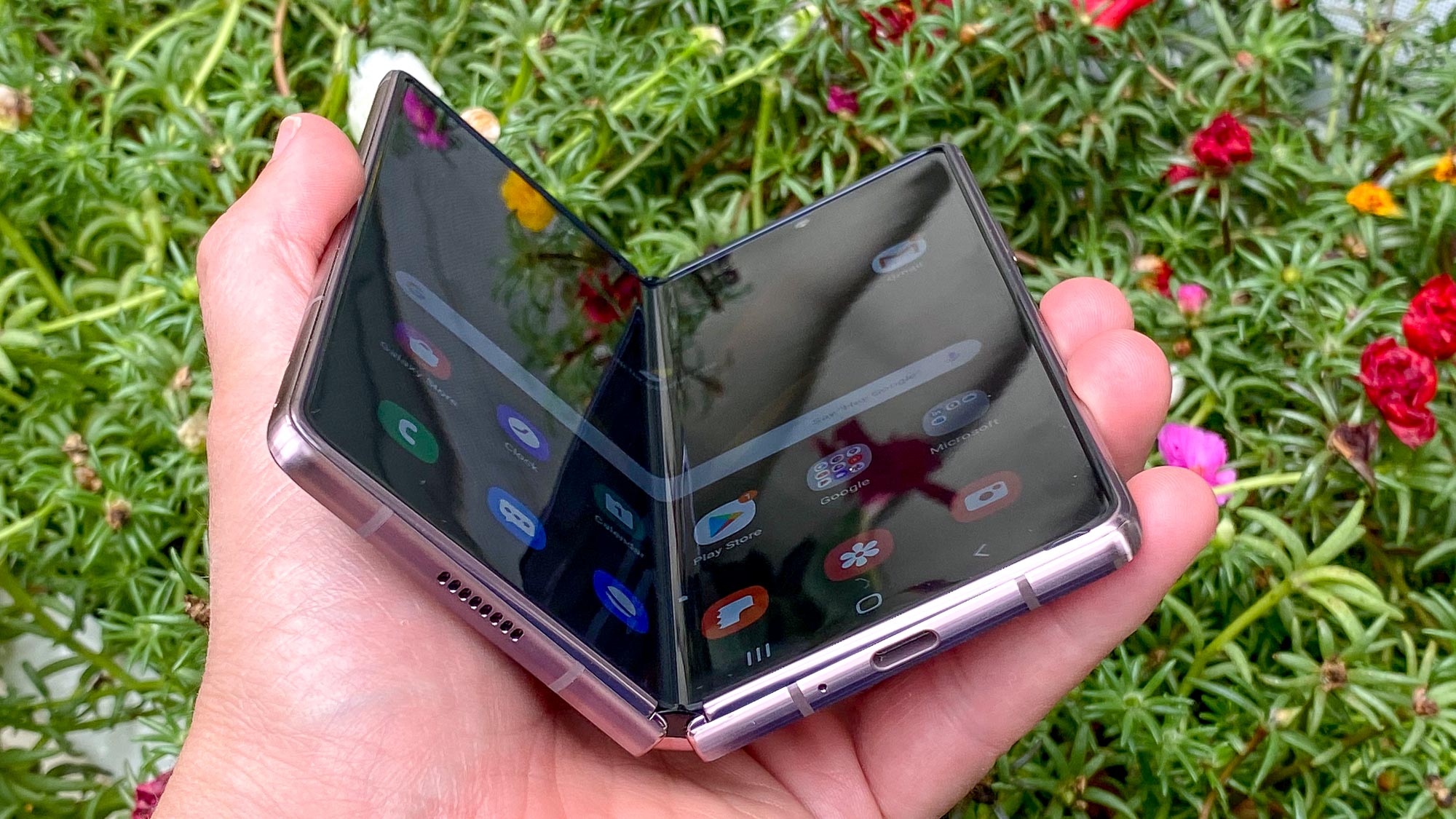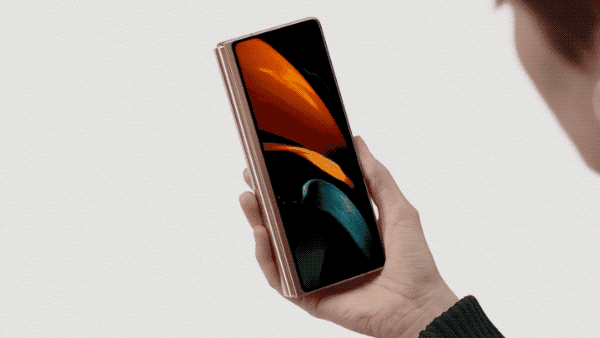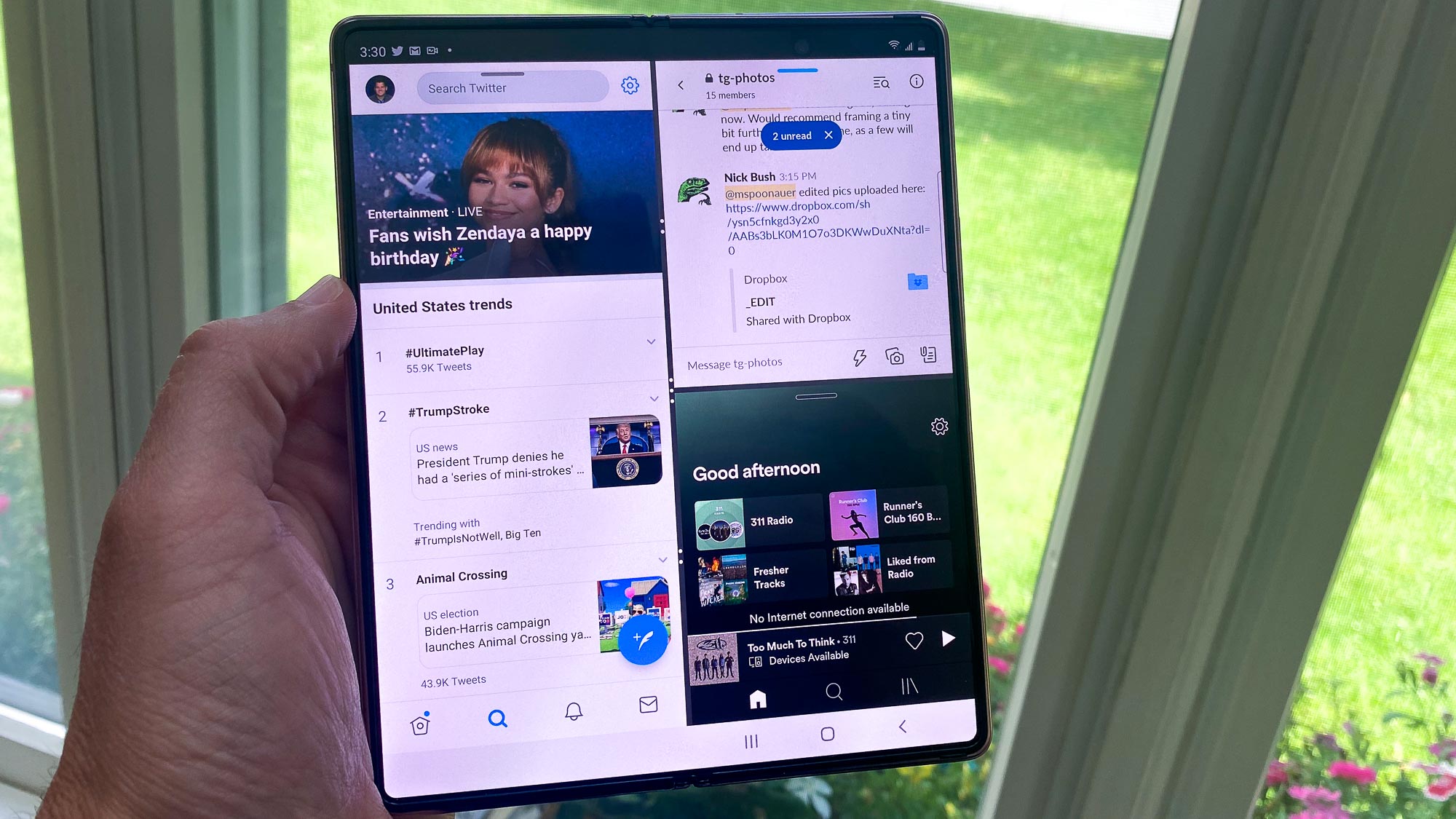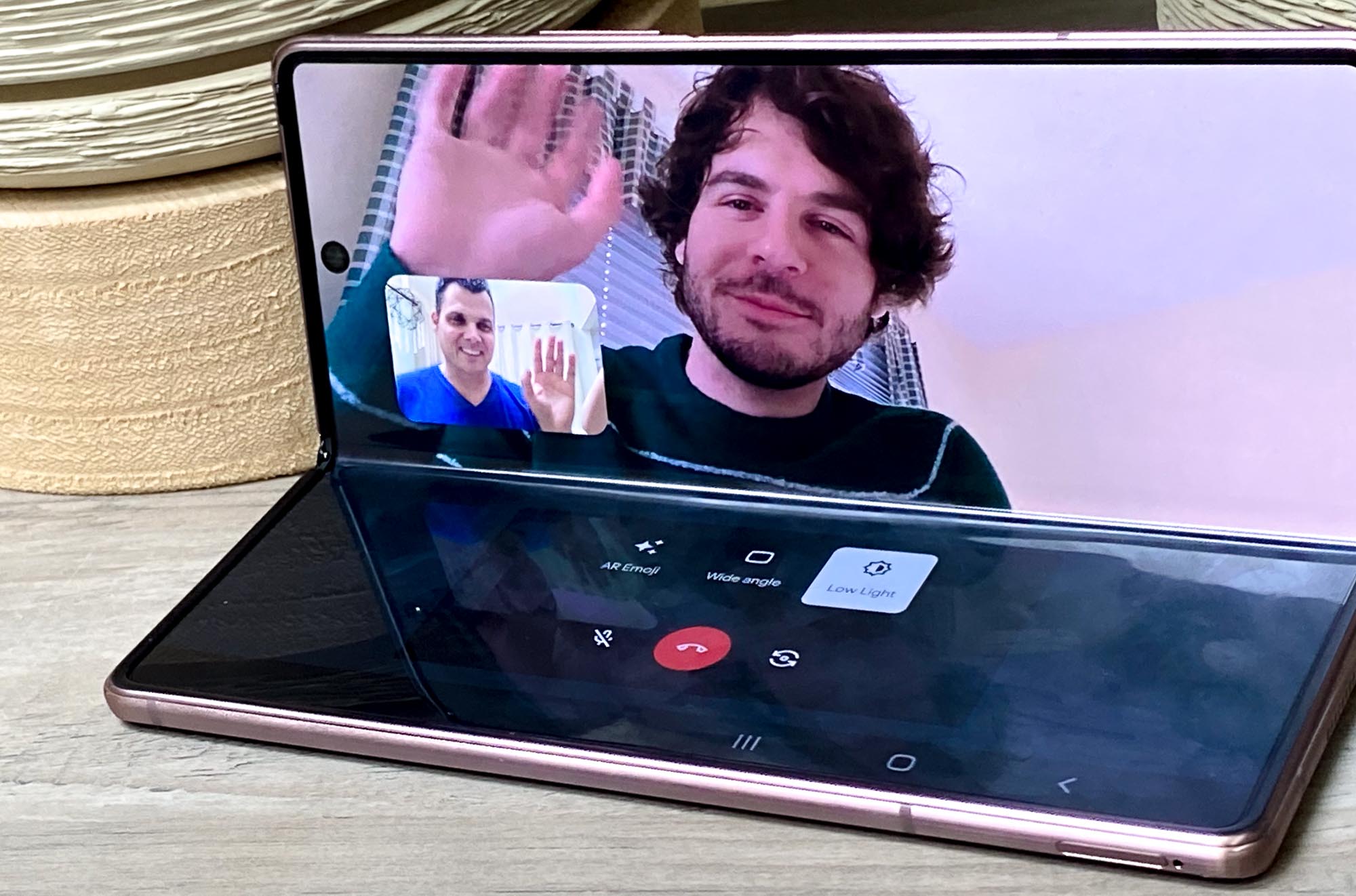Galaxy Z Fold 2 finally makes a good case for foldable phones
By emphasizing productivity, Samsung goes a long way to justifying the Galaxy Fold 2’s cost

Phone makers have spent more than a year trying to convince people that there's a reason to get a foldable phone, with little success to show for it. Yes, it's undeniably cool to open up a phone to reveal a larger display. And yes, any extra screen real estate is always welcome. But no — paying anywhere from $500 to $1,000 more than a top flagship just so you can fold your phone into a slightly smaller device isn't a premium most of us are ready to take on (at least judging by the sales).
Don't look now, but with the Galaxy Z Fold 2, Samsung may have just made the most compelling case yet for why you need a foldable phone. And it boils down to the same argument for why you need a smartphone in the first place — to take care of business. Samsung's argument is that the extended screen on the Galaxy Z Fold 2 lets you take care of that business in ways that simply aren't possible on a conventional phone.
- These are the best phones right now
- Galaxy S21 Plus leak reveals big upgrade to fight iPhone 12
- Just in: Samsung Galaxy Z Fold S leak just revealed Surface Duo killer
Is it a winning argument? Our initial Galaxy Z Fold 2 review is pretty positive, though the phone's success will ultimately depend on how many people want to pay that astronomical $2,000 asking price. But it's clear from the way that Samsung presented the Galaxy Z Fold 2 that it views this phone as a productivity booster.
"Samsung has learnt a lot from its first generation device and software is an area that has seen considerable refinement," said Geoff Blaber, vice president for research in the Americas for CCS Insight. "Productivity should be among the lead advantages of a foldable form factor so it’s critical to encourage people to shift from the tried and tested form factor of a 5-inch-plus touch screen. To that end it’s inevitable that productivity is central to the device’s positioning."
How the Galaxy Z Fold 2 makes you more productive
When Samsung first previewed the Galaxy Z Fold 2 back in August, it emphasized the design changes from the original Galaxy Fold. There was a good reason for that approach — if last year's Fold made any sort of impression, it was for the design issues that delayed its launch while Samsung worked to improve the phone's durability.

By initially talking up the Galaxy Z Fold 2's new-and-improved hinge and bigger screens, Samsung could then spend the phone's launch event talking about how those features can help the users get more things done. "A new form factor only becomes meaningful when it unlocks new user experiences," said Patrick Chomet, Samsung's head of customer experience, during this week's Galaxy Z Fold 2 live stream.
Apps optimized for the big screen(s)
To that end, Samsung has put a considerable effort into showing what that 7.6-inch internal display enables users to do. Running the Gmail app on the Galaxy Z Note 2's screen, for example, you can read a message on one side of the screen while still keeping an eye on your inbox on the other side. It's an experience that's familiar to anyone with a tablet or laptop, but one that hasn't really been possible on a smartphone display up until now. Microsoft Office is expected to have a similarly optimized look on the Galaxy Z Fold 2, as are YouTube and Spotify (though you wouldn't really describe those apps as productivity boosters).
Sign up to get the BEST of Tom's Guide direct to your inbox.
Get instant access to breaking news, the hottest reviews, great deals and helpful tips.

The larger exterior screen on the Galaxy Z Fold 2 — it's now 6.2 inches, up from 4.6 inches on the original Fold — also helps you get more tasks done, and not just because you've got more screen to work with. Like the original Fold, the new model sports an App Continuity feature where you can start using an app on the cover screen before opening up the Fold to pick up where you left off on the larger interior display. But now, when it's time to move on, you can fold up the phone and go back to using that same app on the external screen without missing a beat.
Better multitasking (and drag and drop)
The original Fold let you run three apps at the same time, and that's continuing with the Galaxy Z Fold 2. Now you can set up presets of paired up apps, launching those App Pairs with just a tap. The improved multitasking on the Galaxy Z Fold 2 also means you can drag and drop content from one app window into another — adding a photo to a message, say.

One of the more impressive things I saw during this week's Galaxy Z Fold 2 launch involved a demo with a pair of Microsoft Office apps. During that demo, Powerpoint and Excel were running side-by-side on the Z Fold 2's display, allowing a user to work in both apps at the same time, moving information from the spreadsheet into a presentation. It's that kind of work with Microsoft on the Office interface that really helps push the Galaxy Z Fold 2 as a productivity tool, according to Mikako Kitigawa, a director analyst at Gartner.
Flex mode makes a big difference
Meanwhile, improvements to the Galaxy Z Fold 2's hinge — it can now open at different angles — allow this larger foldable phone to adapt one of the best features of the Galaxy Z Flip. That foldable flip phone offers a Flex mode, where you can open the phone at a 90-degree angle and essentially split the screen in half: one side becomes the viewing area and the other becomes an area for controls and other actions.

Flex mode was one of my favorite things about the Galaxy Z Flip when I reviewed that phone, and the capability figures to really come in handy on the Galaxy Z Fold 2. One of those apps — Google Duo — can use Flex mode to put the video chat on the top part of the 7.6-inch display, while controls for adding more people to the chat and muting the call are available on the bottom half of the screen. That leaves you to keep your hands free, just as if you were using a laptop.
Galaxy Z Fold 2’s cost remains a concern
Emphasizing the productivity boosting aspects of the Galaxy Z Fold 2 goes a long way toward addressing one of the foldable's remaining sticking points — its $1,999 cost. That's a lot of money to pay for a phone, considering that the Samsung's productivity-minded Galaxy Note 20 Ultra costs $700 less at $1,299, and no one's going to confuse that for a bargain-basement price. But Samsung can make the argument that for $1,999, you're effectively getting a phone and a tablet, given all the things that the Fold 2's screen allows you to do.
This is still a very exclusive device given the price point and form factor. Technology enthusiasts who are prepared to spend upwards of $1,999 are a niche, but they’re also critical to the process of development and refinement as foldables seek to move into the mass market.
— Geoff Blaber, CCS Insight
And that's an argument Samsung's going to have to be pretty convincing on, as the analysts I spoke to still struggle to identify a big audience for a device like this.
"I would imagine that the potential users would be gadget lovers and techies who like to try new things," Kitigawa said. "[The folding] phone market is new. But with the price point, the buyer segment would be limited."
“This is still a very exclusive device given the price point and form factor," said CCS Insight's Blaber. "Technology enthusiasts who are prepared to spend upwards of $1,999 are a niche, but they’re also critical to the process of development and refinement as foldables seek to move into the mass market.”
Galaxy Z Fold 2 outlook
When the Galaxy Z Fold 2 ships on Sept. 18, it will bring more than a few questions with it. Durability will continue to be a concern, even after Samsung's assurances that it got the design right this time. There's no listed water resistance, for example, which seems like an oversight on a phone that runs two grand. And the vast majority of phone shoppers are likely to look at the Galaxy Z Fold 2's extended screen and decide that a sub-$1,000 smartphone with a conventional display suits them well enough.
Still, since the first Galaxy Fold got its preview in early 2019, I've looked at each subsequent design and thought, "Well, that's impressive and all, but why would anyone need that kind of device?" With the Galaxy Z Fold 2, Samsung is finally providing an answer.
Philip Michaels is a Managing Editor at Tom's Guide. He's been covering personal technology since 1999 and was in the building when Steve Jobs showed off the iPhone for the first time. He's been evaluating smartphones since that first iPhone debuted in 2007, and he's been following phone carriers and smartphone plans since 2015. He has strong opinions about Apple, the Oakland Athletics, old movies and proper butchery techniques. Follow him at @PhilipMichaels.

